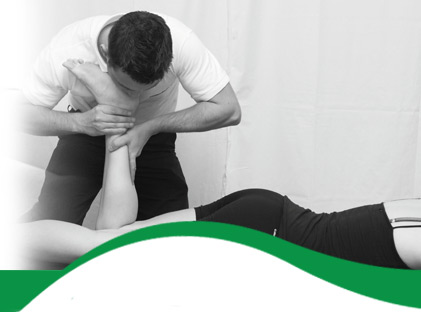Physiotherapy Advice
This section is designed to present real life case studies to guide you into self diagnosing your own sports injuries and musculoskeletal problems. The case studies provide information on how certain conditions and injuries present and why a particular problem may not be what you originally thought. Please click on each green heading to reveal the information below.
Could your persistent adductor (groin) strain be caused by a little known nerve called the obturator nerve?
This was the case with a triathlete who was recently cured at Seven Hills Physiotherapy. He came to see me with what he thought was an adductor/groin strain. He had been advised by his peers he needed acupuncture and deep tissue massage. His problem had been ongoing for a while and was getting worse despite rest and stretching. He was unable to run and was becoming desperate as he had his eye on an upcoming half Iron Man event.
We began the consultation and it was immediately apparent it was not a muscular problem. The obturator nerve was the cause of the problem.
There were several clues that helped me form my diagnosis.
-
There had been no change in training patterns or a particular event he could remember that may have caused a muscle injury.
-
He reported it was difficult to locate the cause of the problem by pressing on the area. Deep pressure to the adductors did not cause pain.
-
He reported difficulty moving due to pain after sitting for a period of time. He spoke of a particular incident when being unable to move following a train journey to London.
-
The pains would shoot down the inside of his leg when he was sitting and resting.
-
Physical examination proved difficult to find a specific area of tenderness on the adductors muscle groups.
-
The hip moved through full pain-free range and stressing the adductors did not cause pain.
-
The lower back was stiff with all general movements.
-
Further examination identified stiffness at the L3 and L4 vertebrae.
Why does this information support the diagnosis of an obturator nerve problem over an adductors muscle strain?
-
Muscle tissue will become injured when it is overloaded. This may be due to a sudden injury or overloading the tissue over a longer period of time (i.e over training). This was not the case with this triathlete. He rested and gently stretched the tissue but it continued to get worse. Why is this? Muscle tissue is expected to heal over 6-8 weeks unless there are other barriers to recovery (i.e a nerve problem).
-
As you all know pressing damaged muscle tissue will hurt. This is through a pain mechanism called mechanical nociception. This was not the case with this gentleman. Adductor muscles, like any other muscles, will respond to stress by providing pain if they are damaged. This gentleman was able to use the adductors without pain. Strenuous testing of the muscle tissue was not painful.
-
Damaged muscles, unless inflamed, will not generally cause problems at rest. This triathlete suffered more problems at rest than during vigorous exercise. Nerve pain can shoot on and off for no apparent reason. These symptoms are known as ectopic symptoms. This is caused by the nerve generating its own impulses. This is the likely explanation of the problems he was suffering when sitting and on the train.
-
The obturator nerve exits the spine at levels L2-L4. If any of these levels are stiff it can cause a movement restriction at the nerve. This causes the nerve to become tethered and irritable. It will respond by causing pain in the parts of the body the nerve passes. This gentleman was stiff at L3 to L4.
So are you wondering what happened to this gentleman?
The diagnosis of Obturator nerve mecahnosensitivity was made. I treat the cause of the problem by manipulating the L3 and L4 spinal segments. A home exercise programme was prescribed to maintain this movement. Acupuncture was prescribed to desensitise the nerve along the adductor distribution.
He required 1 assessment and 3 treatment sessions to fully resolve his problem. As the cause of the problem has been addressed I do not see this as being a problem in the future if he continues to keep his back flexible. He is now back training in an attempt to reach his goal of competing in an upcoming half Iron Man event.
Do parts of your body cause you pain, ache, feel stiff, or seem weak or unstable?
Do parts of your body cause you pins and needles, tingling, burning, or feel numb?
Do any of these complaints prevent your body from moving or working how it should?
Do any of these complaints disturb your sleep or make it difficult to relax?
Do any of these complaints or loss of movement in your body mean there are things in your life that you struggle to do or can’t do at present?
Do you feel your life would be more comfortable and enjoyable if somebody could help you with these complaints?
If you answered YES to any, or all, of these questions then the Seven Hills Physiotherapy team are here to help. We will take great interest in listening to YOUR problems so we can find out how YOU would like us to help YOU lead a more comfortable and enjoyable life.





